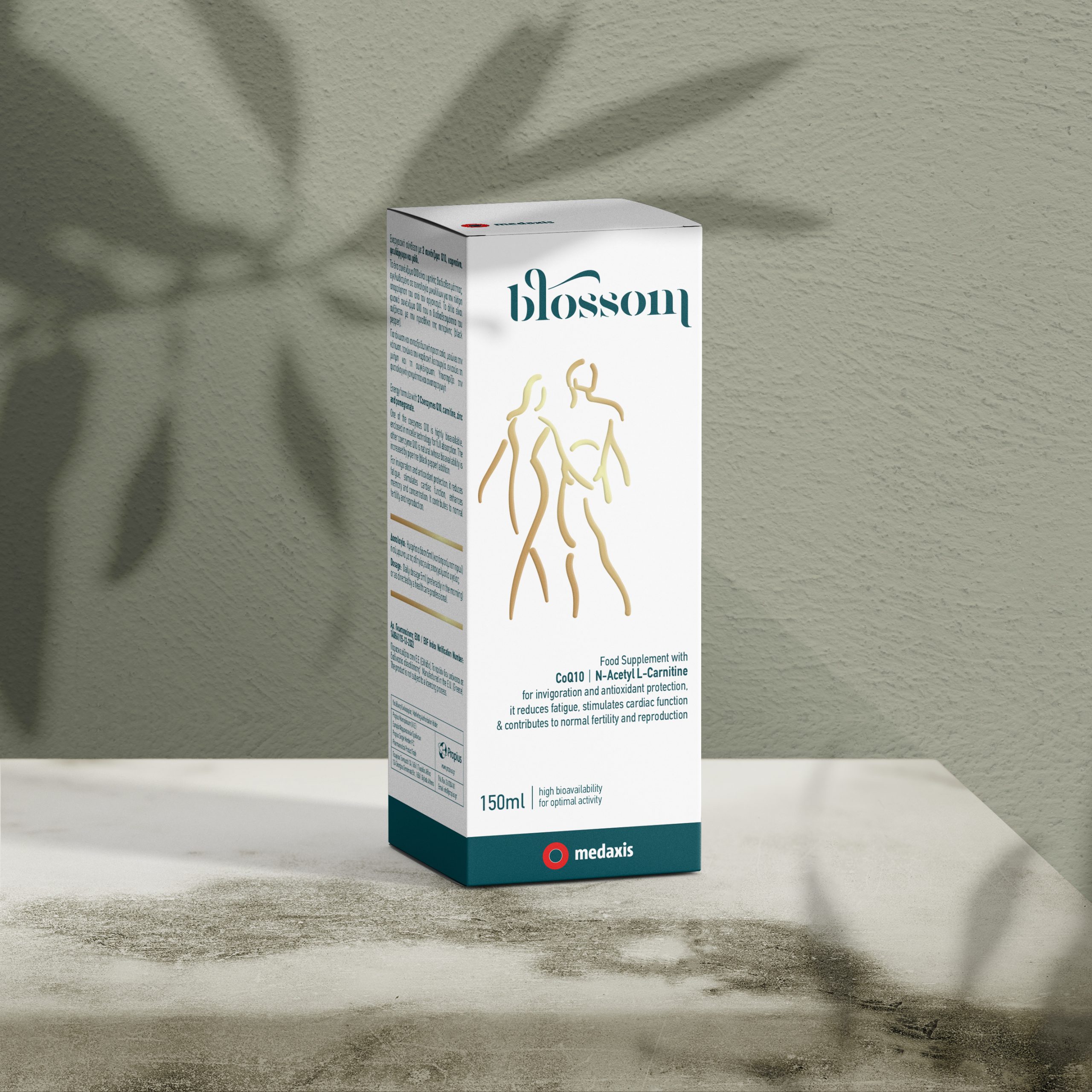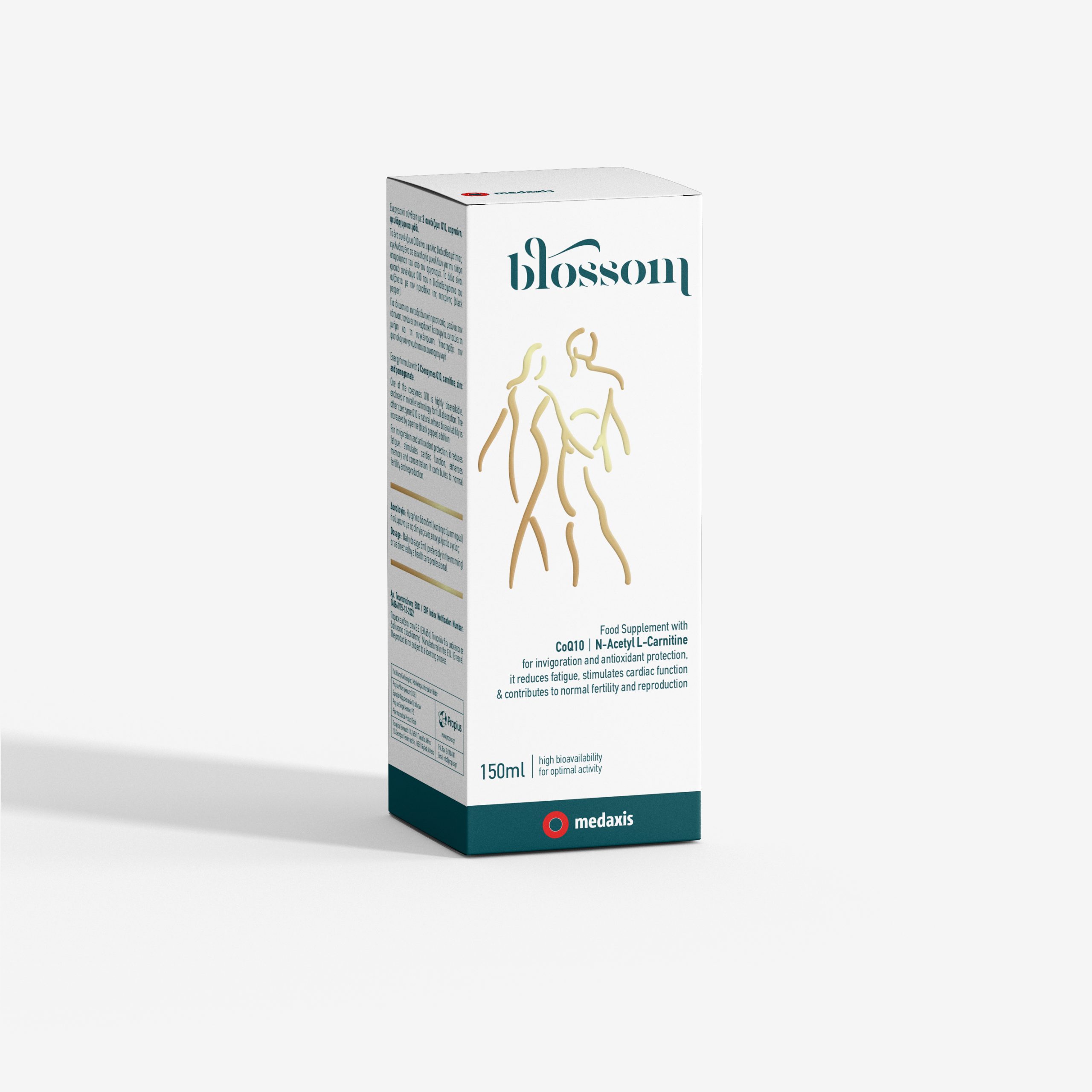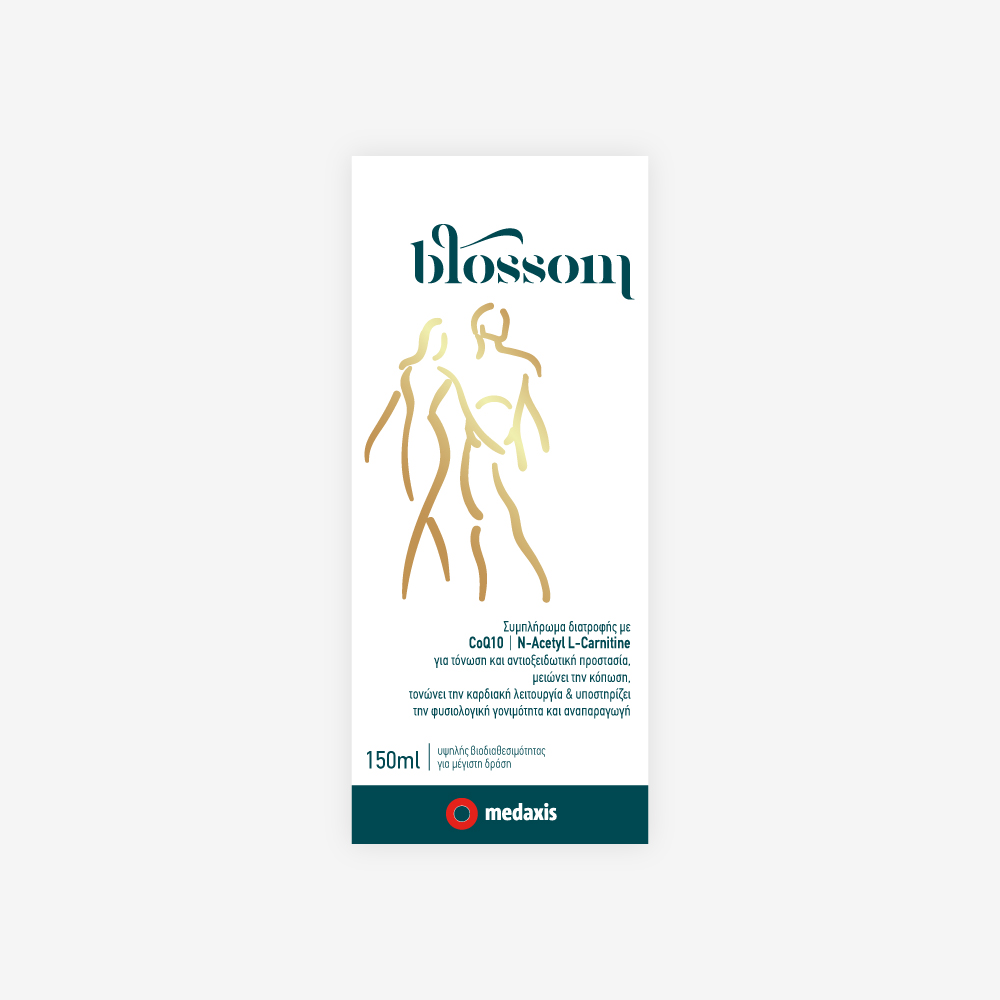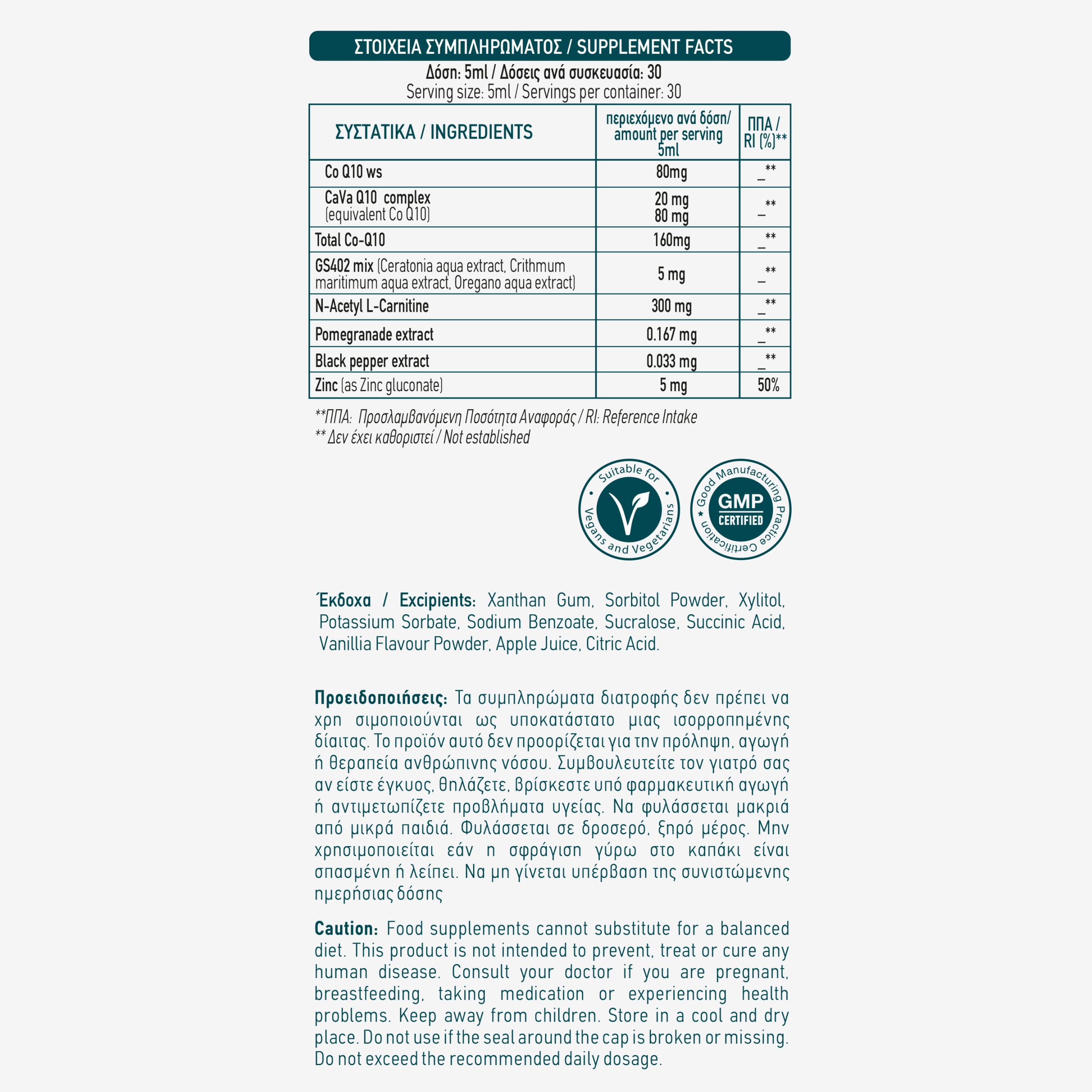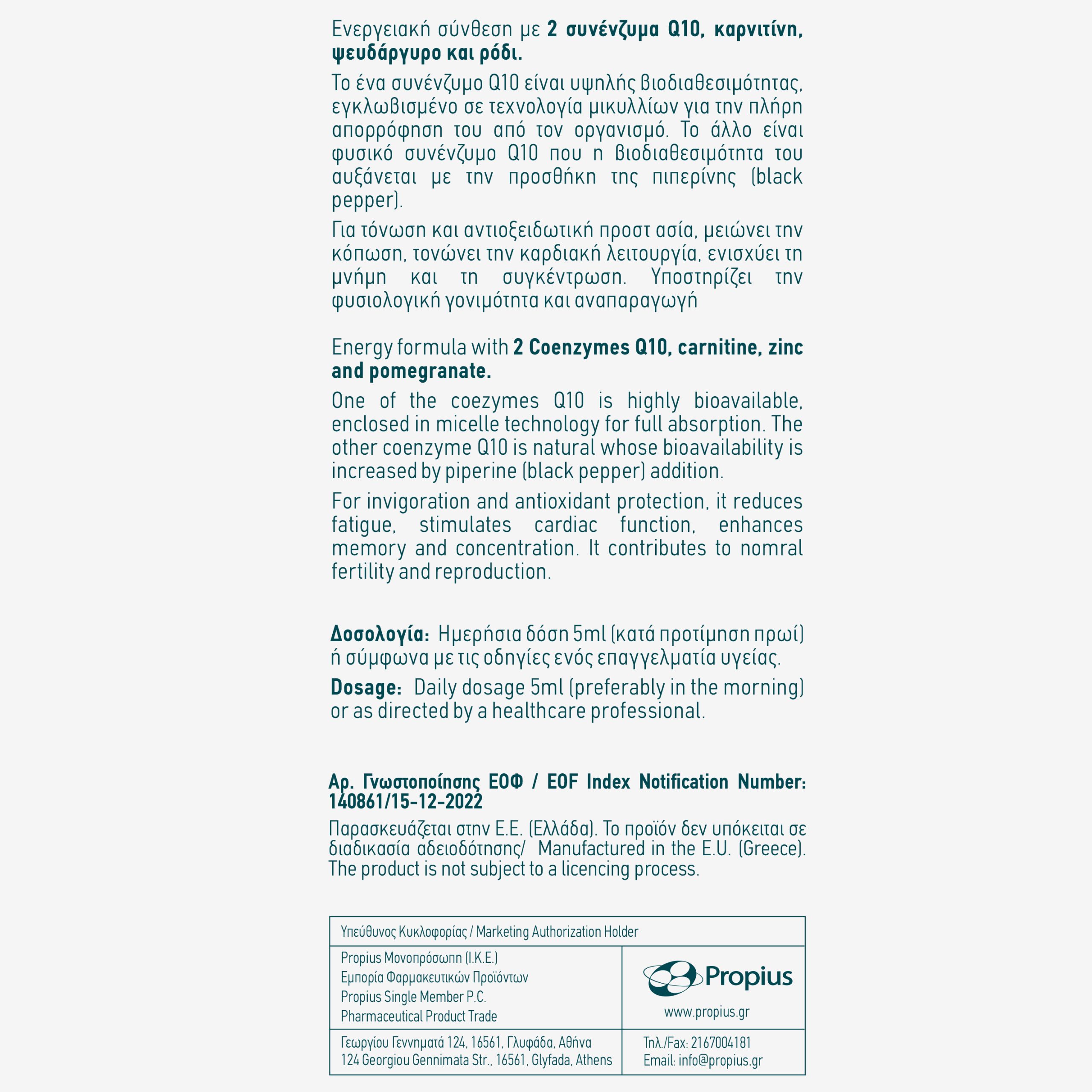Blossom
Dietary supplement with 2 double coenzyme coQ10 for:
- Invigoration
- Antioxidant protection
- Stimulation of heart function
- Reduction of myopathy by statins
- Anti-aging
Benefits of CoQ10
Many of our normal biological processes create byproducts known as free radicals. These compounds can sometimes cause cellular damage known as oxidative stress. Many of the health benefits of CoQ10 are due to its ability to protect against oxidative stress. This is an important ability as oxidative stress and oxidative damage is associated with inflammation and a wide range of chronic disease.
1. Treat heart disease and heart failure
Heart failure is the result of accumulating damage from heart disease such as coronary heart disease or hypertension (high blood pressure). Over time, these conditions change the structure or function of the heart until it is no longer able to pump blood throughout the body as it should. A study involving 420 participants with moderate to severe heart failure reported that coQ10 was able to reduce their symptoms and even reduce the risk of cardiovascular-related death (Mortensen, 2014). Participants of another study treated with CoQ10 had fewer hospitalizations for worsening of heart failure symptoms than the placebo group (Morisco, 1993). Researchers believe that CoQ10 is able to improve the condition of heart failure patients because it helps restore proper energy production and heart function while protecting against oxidative damage (Di Nicolantonio, 2015).
2. Help lower blood pressure
High blood pressure or hypertension is a risk factor for cardiovascular disease. CoQ10 may be able to boost heart health by reducing the risk of heart disease. A systematic review of 12 clinical studies found that CoQ10 was able to reduce systolic blood pressure, the largest marker of heart disease risk, by up to 17 mm Hg and diastolic blood pressure by up to 11 mm Hg (Rosenfeldt, 2007).
3. It can help Parkinson's disease
CoQ10 was able to slow the development of disabilities in patients with Parkinson’s disease in a small clinical study. All doses of the enzyme showed a significant benefit over placebo, but the highest dose (1200 mg of CoQ10 per day) was more effective (Shults, 2002).
4. Reduce the symptoms of statin-induced myopathy
Statins are a widely used cholesterol-lowering drug commonly taken by people with high risk factors for cardiovascular disease. Statins are very effective treatment in lowering blood lipids, but they have significant side effects. One of them is myopathy, a condition in which the muscle fibers do not work properly. The result is muscle pain, fatigue and muscle weakness. A meta-analysis of randomized controlled trials shows that CoQ10 may help moderate this effect. People with statin-induced myopathy who received CoQ10 supplementation had fewer symptoms than those in the placebo groups (Qu, 2018).
5. Fewer migraines
There is a link between mitochondrial dysfunction and certain types of migraine headaches. And migraine sufferers have been found to have lower levels of CoQ10 than those without the debilitating headaches. In fact, their levels are low enough to be considered CoQ10 deficient (Yorns, 2013; Hershey, 2007). Supplmentation of CoQ10 may reduce migraines. Oral supplements of the enzyme successfully relieved migraine symptoms compared to placebo. Participants who received CoQ10 experienced fewer headache days, lower frequency of migraine attacks, and/or incidence of headache-induced nausea (Sandor, 2005).
6. Enhance physical performance and endurance
Since CoQ10 supports mitochondria and energy production in cells, a lack of CoQ10 in muscle cells can hinder muscle function and physical performance. In fact, exercise intolerance is a common side effect of mitochondrial disease. Dysfunction in these energy centers causes muscles to produce more lactic acid (which causes muscles to cramp during or after intense exercise) and free radicals (Siciliano, 2007). During exercise, free radicals can also cause cellular damage. Supplementing with CoQ10 can prevent this process after intense exercise.
How to get enough CoQ10
The body produces less CoQ10 over time. Therefore enhancing dietary intake or opting for CoQ10 supplementation is critical. But aging isn’t the only thing that lowers CoQ10 levels. Our levels can be lower after taking statins or following a heart attack. In these cases, or in the case of coenzyme Q10 deficiency, a healthcare professional may recommend high doses to bring levels back to normal. CoQ10 is generally well tolerated and the side effects of the supplement tend to be mild.
Organ meats (heart, liver, kidneys) are excellent sources of CoQ10, although they can be difficult to fit into our daily diet. Eating oily fish such as mackerel is another effective way to increase your dietary intake of CoQ10. Some fruits and vegetables contain the compound, as well as some legumes, nuts and seeds, albeit in lower amounts.

Typically, 100–200mg of CoQ10 per day, although some conditions may require higher doses of 300–600mg. CoQ10 is a safe supplement that can benefit a large group of people looking for a natural way to boost health.

